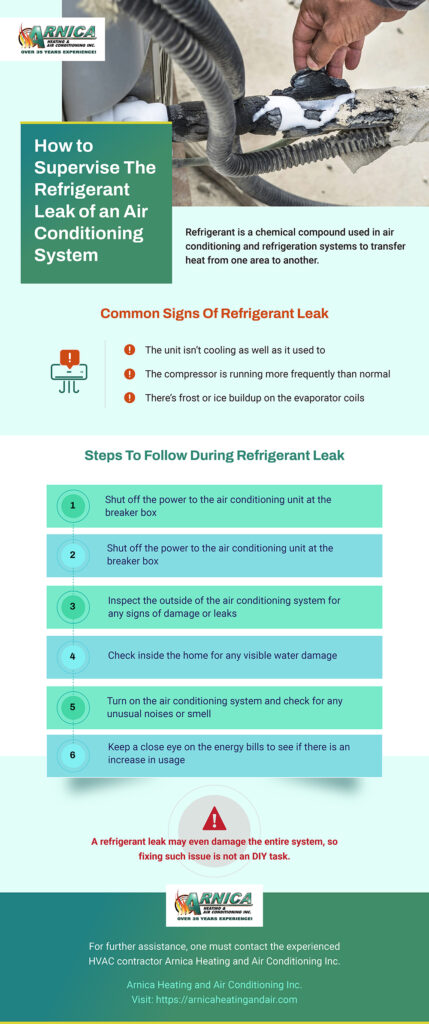
A central AC unit is a complex system that requires refrigerant to cool the air. The frequency at which a central AC unit needs charging with refrigerant depends on several factors, such as the size of the unit, its age, and any potential leaks in the system. It is recommended to have a professional HVAC technician inspect and recharge the unit every 1-2 years to ensure optimal performance and efficiency.
Depending on the usage and maintenance of the unit, some central AC units may require more frequent charging with refrigerant. Regular maintenance, such as cleaning or replacing air filters and checking for leaks, can help prolong the time between charges. It is important to monitor the unit for any signs of decreased cooling efficiency or unusual noises, as these may indicate a need for refrigerant recharge.
Identifying Insufficient Refrigerant of Central AC
Here are some signs that your central AC unit may need a refrigerant recharge:
Warm air blowing:
One of the most common signs that your central AC unit may need a refrigerant recharge is if warm air is blowing instead of cool air. This could indicate that the refrigerant levels are low and are not able to properly cool the air.
Insufficient cooling:
Insufficient cooling is another sign that your central AC unit may need a refrigerant recharge. If you notice that your home is not reaching the desired temperature or that certain rooms are consistently warmer than others, it could be a result of low refrigerant levels. Inadequate cooling can also put extra strain on the system, leading to increased energy consumption and higher utility bills. Call out experts specializing in central air conditioning repair in Staten Island to fix the issue for you.
Increased energy bills:
If you notice a sudden increase in your energy bills without any other explanation, it could be a sign that your central AC unit is not functioning efficiently. This could be due to various reasons, such as clogged filters, dirty coils, or a malfunctioning compressor. It is important to address this issue promptly, as it not only leads to higher utility bills but also indicates potential problems with your AC unit that may require professional maintenance or repair.
Frozen coils of Central AC:
Sometimes, a sudden increase in energy bills can be caused by frozen coils in your central AC unit. This occurs when there is restricted airflow or low refrigerant levels, causing the coils to freeze and reducing the efficiency of the system. If you notice ice buildup on your unit or reduced cooling performance, it is crucial to have a professional inspect and repair the issue to prevent further damage and optimize energy efficiency.
Hissing or bubbling noises:
Keep checking for any hissing or bubbling noises coming from your central AC unit. These sounds could indicate a refrigerant leak, which not only affects cooling performance but also poses health risks. Ignoring these noises and the potential refrigerant leak can lead to further damage to the system and can even result in the release of harmful chemicals into your home. So, reach out to a professional HVAC technician specializing in central air conditioning repair in Staten Island for a thorough inspection and repair.
Water leaks from Central AC:
Water leaks happen for various reasons, such as clogged drain lines, damaged condensate pans, or malfunctioning pumps. Ignoring water leaks can lead to mold growth, structural damage, and decreased efficiency of the AC unit. It is important to address water leaks promptly by contacting a professional HVAC technician who can identify the root cause and provide the necessary repairs or replacements. Call out professionals for central air conditioning repair in Brooklyn.
Longer cooling cycles:
One of the major causes of longer cooling cycles is a dirty or clogged air filter. When the air filter becomes dirty, it restricts the airflow and makes it harder for the AC unit to cool the space efficiently. Until or unless the air filter is cleaned or replaced, the AC unit will continue to run for longer periods of time, resulting in increased energy consumption and higher utility bills. Additionally, prolonged cooling cycles can also put extra strain on the AC unit’s components, potentially leading to premature wear and tear and the need for costly repairs.
Ineffective de-humidification:
Last but not least, ineffective de-humidification is another consequence of a dirty air filter. When the air filter is clogged, it restricts the airflow and prevents the AC unit from effectively removing moisture from the air. This can lead to a damp and uncomfortable indoor environment, promoting the growth of mold and mildew. High humidity levels, as experts say, can also cause damage to furniture, electronics, and other belongings in the space. With regular maintenance and cleaning of the air filter, the AC unit can efficiently dehumidify the air, creating a more comfortable and healthy living environment.
Whether for residential or commercial spaces, maintaining the central AC Unit with regular maintenance and cleaning of the air filter is crucial.
How to Supervise The Refrigerant Leak of Central AC


Over 35 years of experienced HVAC engineer and blogger with years of experience writing about various topics related to multiple types of HVAC systems installation, repair, and maintenance. I have been in this industry since my apprenticeship in 1985. Our team emphasizes quality workmanship while ensuring customer satisfaction is our top priority.




Leave a Reply
You must be logged in to post a comment.